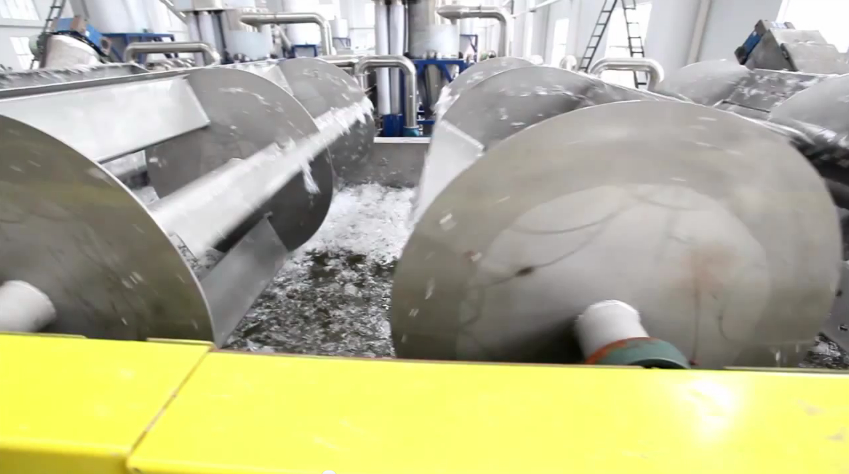By Vicki Matranga, Design Programs Coordinator

Sustainability is important to any business today. Consumers read labels carefully and question alternatives as they shop for new products. Governments regulate and stimulate. Manufacturers and retailers strive to satisfy their customers. Costs for materials, energy and water are rising and everyone wants to save money. Companies often discover that going green can also result in saving green, the color of cash.
Especially in these times of financial constraints, businesses in varied industries and markets are becoming more methodical about taking environmental actions to improve performance in many aspects of their operations. IHA introduces its members to service providers who can help them make more sustainable decisions in their supply chains and production as well as benchmark best practices.
At the 2012 International Home + Housewares Show, we learned of many directions and issues in sustainability. We heard from industry insiders at the Innovation Theater and the Going Green display about environmentally sustainable materials, reduced use of natural resources in production, more efficient packaging and legal issues in advertising. This summer, a series of blog posts will update what was presented at the Show as we continue the conversation with some of the industry leaders who appeared there.

NextLife™ manufactures sustainable plastic resins from post-consumer plastic waste. Their high-performance re-engineered sustainable resins can be customized for use in many applications, including consumer products. NextLife™ partners with clients to analyze current product lines, bring new products to market and develop more eco-friendly operations.
At the 2012 Show, Catherine Del Spina, NextLife’s vice-president/Green Ambassador, presented a program in our exhibitor education series. While based at our Going Green display, Catherine and CEO Ron Whaley answered questions about sustainability and helped exhibitors learn from each other.
Catherine, NextLife has been busy since the Show. What are some key developments?
Our big news is global expansion. We’re growing internationally and in June announced two important developments. NextLife™ recycled polypropylene (PP) and recycled polystyrene (PS) resins received clearance from Health Canada for use in the manufacture of thermoformed or injection molded articles for contact with food. These materials were earlier cleared by the U.S. Food and Drug Administration (FDA) for up to 100% recycled content for food-contact products and now our polypropylene and polystyrene materials are the first to be approved for such use in Canada. Also, we formed a strategic relationship with 300 Recycling, a UK-based global market leader in waste collection and plastic recycling, allowing NextLife™ to process more material from around the world. Now we can extend our recycling solutions and resin offerings to the UK and Europe.
In the spring, we began working with HAVI Global Solutions (HGS) and Americas Styrenics to launch PolyRenew™, a material made from 25% post-consumer recycled and 75% virgin polystyrene for the foamed polystyrene food service market. FDA-compliant for food packaging applications, PolyRenew™ offers molders and manufacturers nationwide a durable and sustainable consumer and food service packaging alternative for take-out clamshells, bowls, plates, cups, egg cartons, and other foam food packaging. This material is now going to be used by major fast food chains across the country.
Tell us how these exciting new materials happen.

NextLife™ has waste recycling relationships with major retailers across the U.S. and recyclers throughout the world. We recycle both films and rigid plastics—like shrink wrap, plastic bags, clothing hangers or buckets. With our proprietary recycling technologies, a traceable flow of post-consumer raw materials insures consistency in finished product, and our lot code tracking system identifies the source. We remove all contamination, such as paper, fabric, foam, rubber, stickers, and metals; clean and decontaminate plastic bags, melt and then filtrate the materials. We separate resins by color and type and can customize to meet client manufacturing needs, and can even match Pantone colors. It’s so amazing to see how all this works. Our 220,000 sq. ft. plant in Frankfort, Ky., has three plastic recycling lines. It’s really impressive to see all the trash come in and leave as clean resin pellets, ready to be used in new products.
With corporate headquarters in Boca Raton, Fla., and offices in New York and Houston, NextLife™ offers special services to IHA members, such as developing marketing concepts or advising on improving manufacturing processes. To learn more about how your company can improve its triple bottom line, visit www.nextlife.com or contact Catherine at 203-664-1879.


